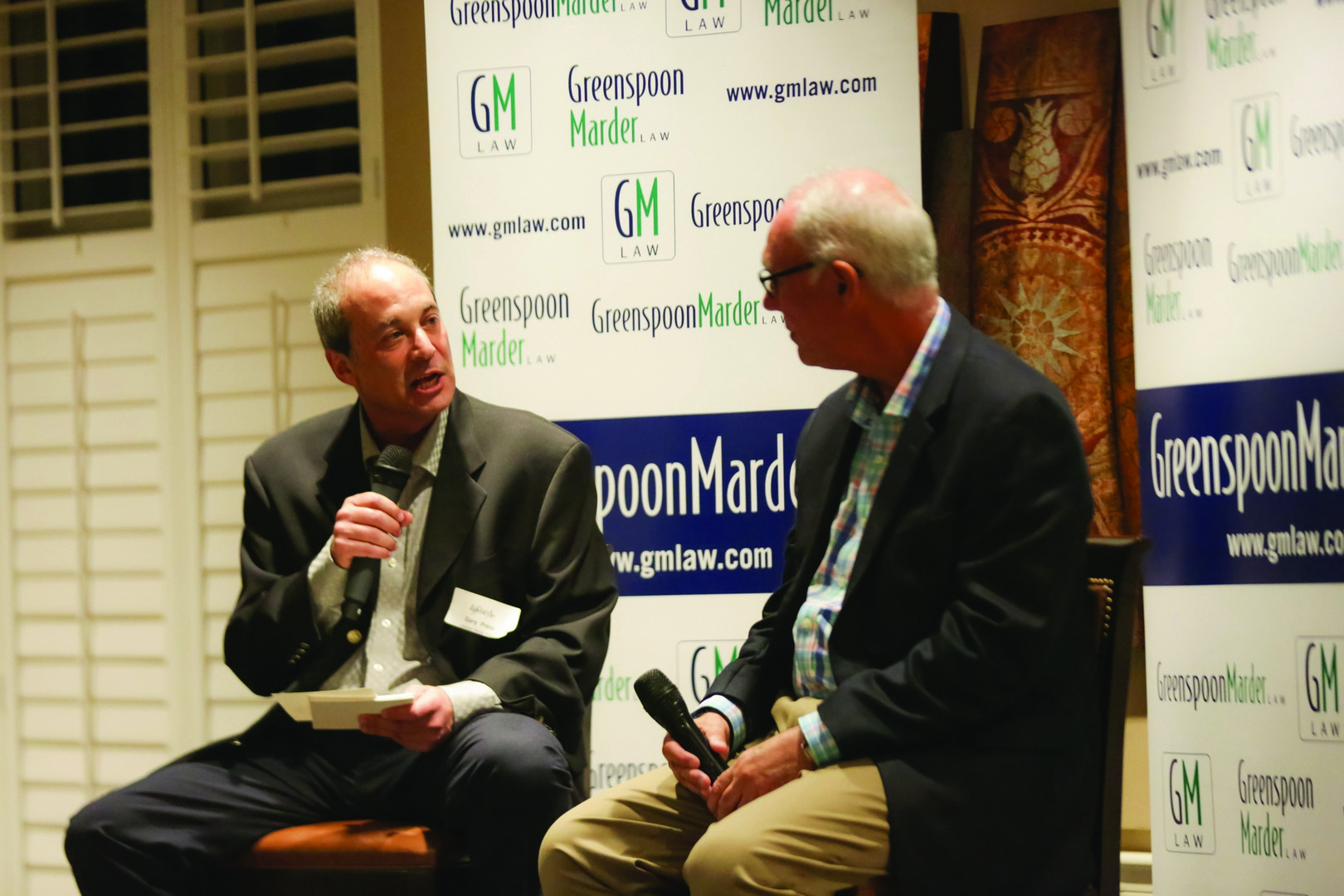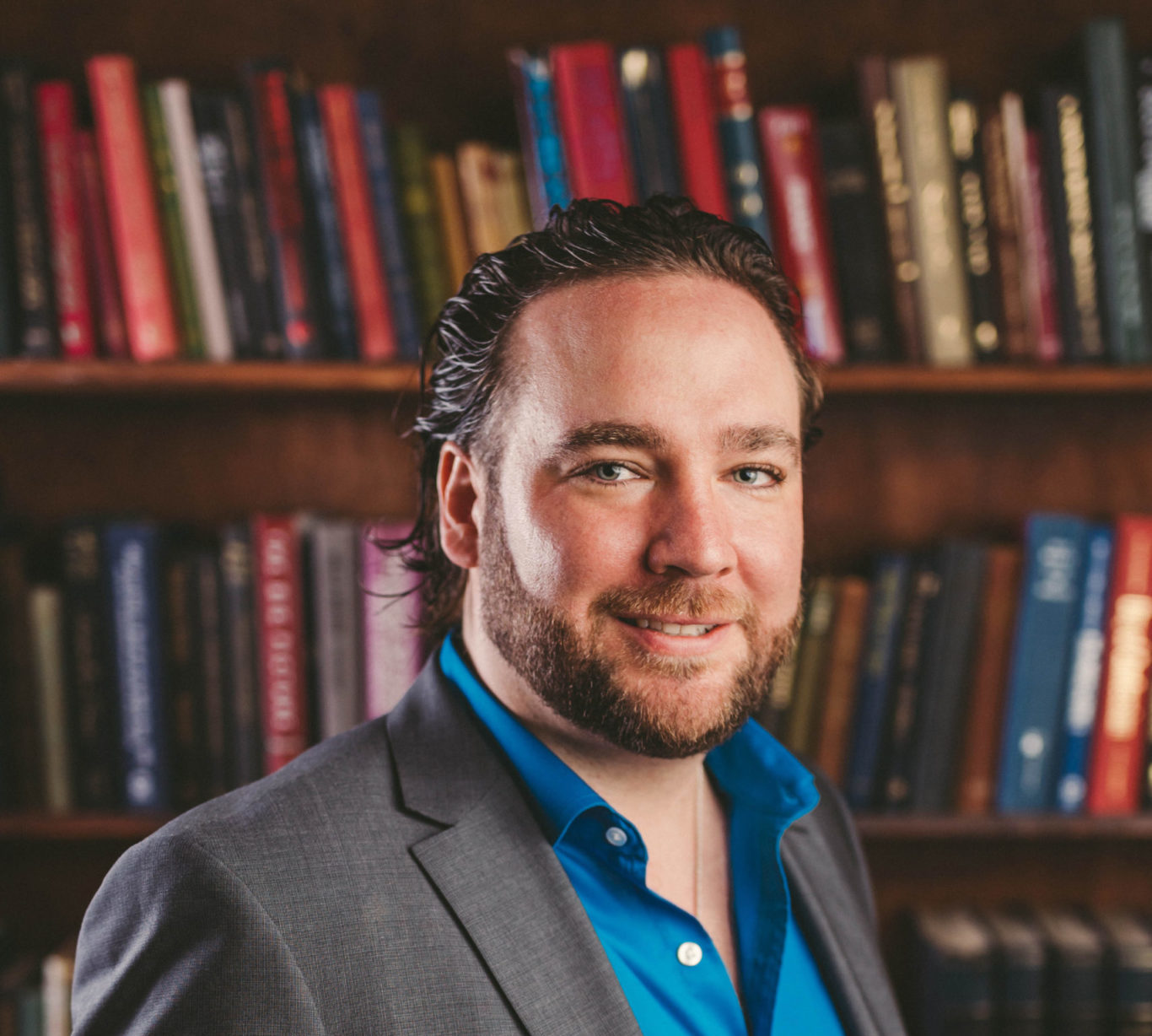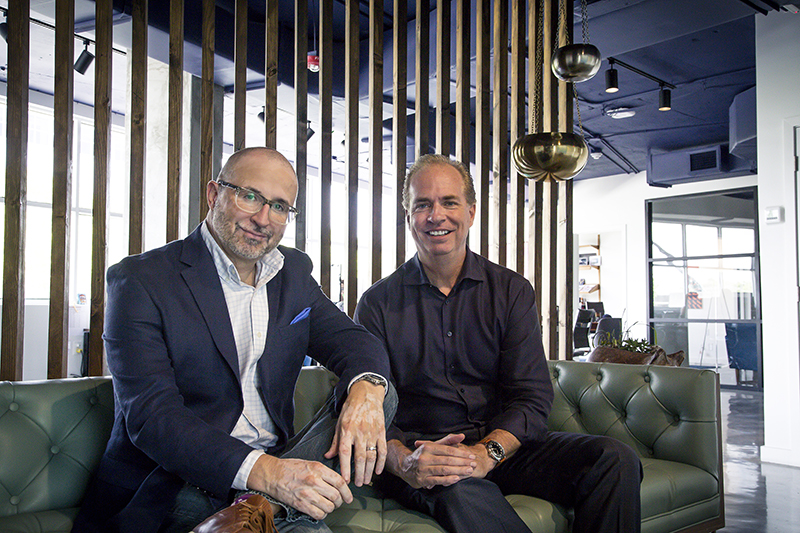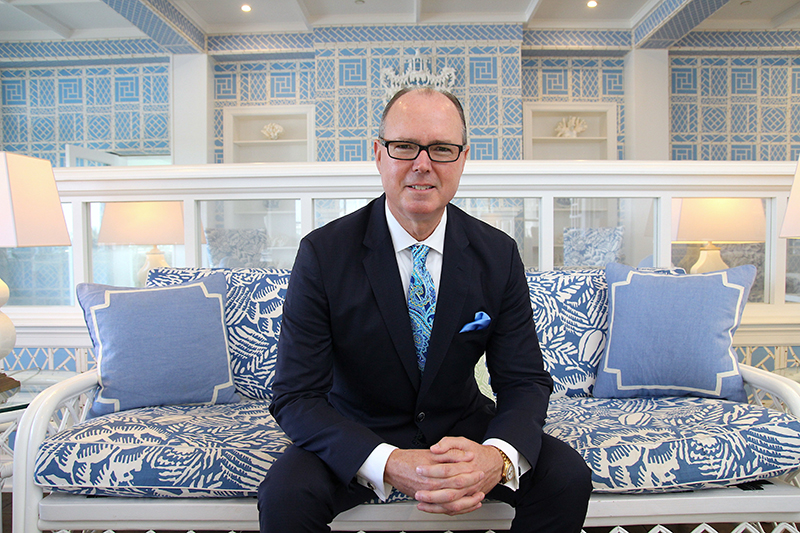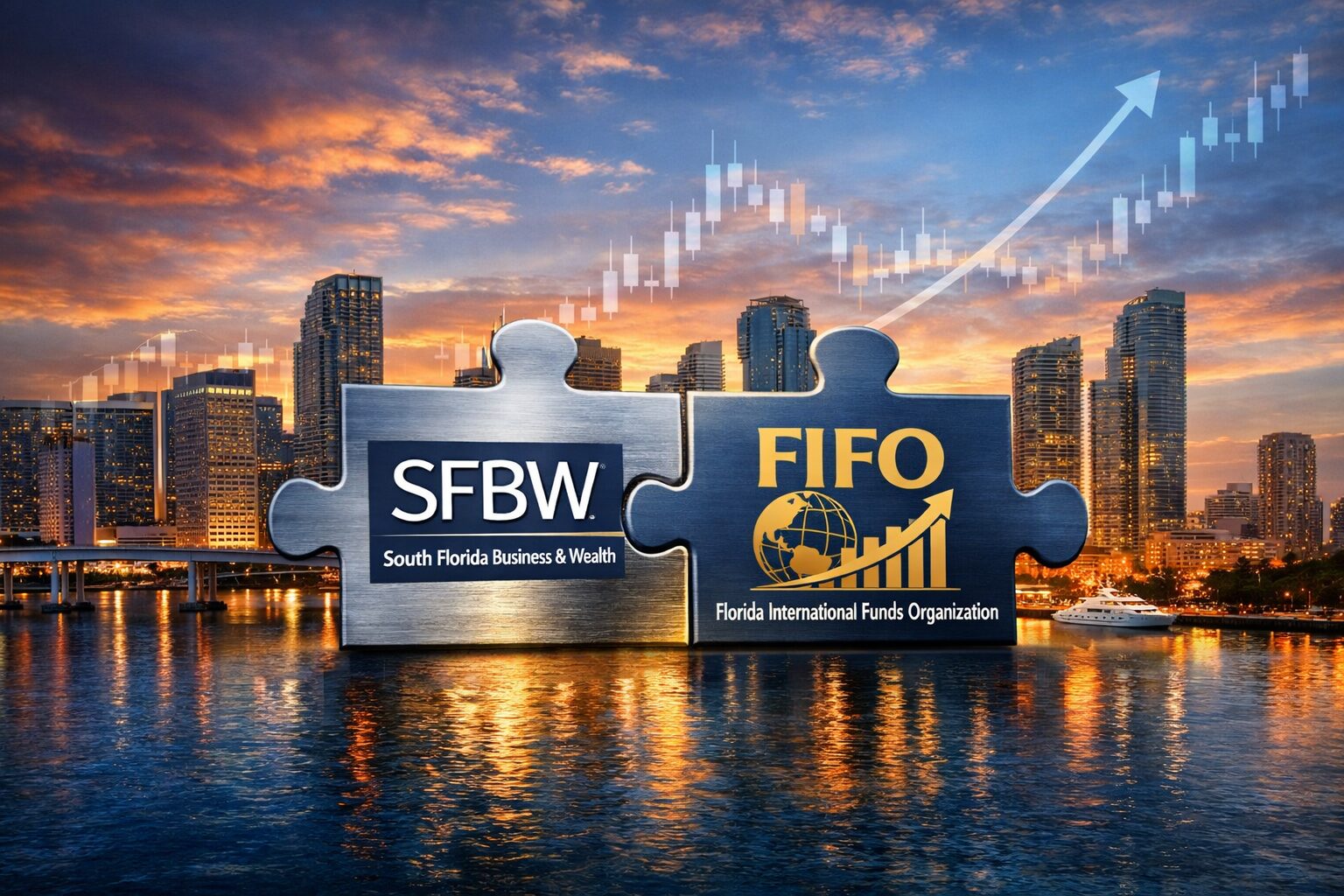CEO Connect Powered By Greenspoon Marder
Jerry Fedele transitions from lawyer to turning around distressed hospitals
Boca Raton Regional Hospital President and CEO Jerry J. Fedele has more than 25 years of experience as a health care lawyer and chief executive officer in academic and regional health care systems.
As general counsel and then CEO at Western Pennsylvania Hospital in Pittsburgh, he played a key role in saving a major academic hospital, Allegheny General, and three community hospital affiliates during the largest nonprofit health care bankruptcy in U.S. history. At Boca Raton Regional, he led a turnaround initiative that resulted in an operations improvement of $60 million over 18 months.
Boca Raton Regional is ranked as a Top Regional Hospital by U.S. News & World Report, received Healthgrades’ rating of Distinguished Hospital for Clinical Excellence for 10 consecutive years, and been ranked by Healthgrades as one of America’s 50 Best Hospitals. It also reports that its patient satisfaction ranks in the top 10 percent of more than 5,000 hospitals nationally. It is also closely allied with the new medical school at Florida Atlantic University.
Fedele has led the evolution of the hospital in offering more to patients with the establishment of nationally leading clinical programs in cardiac care, vascular surgery, oncology, neurosciences, women’s care, advanced robotic surgery and graduate medical education programs in medicine and surgery.
Fedele is also involved in the community as a director of the Boca Raton Chamber of Commerce, the George Snow Scholarship Fund, VHA Southeast and the PGA Tour Allianz Championship. He was the first recipient of SFBW’s Apogee Award as the CEO of the Year in Palm Beach County. He received his Bachelor of Science in mathematics with honors and his MBA from the University of Pittsburgh and his law degree from Duquesne University, where he was class valedictorian.
Fedele was interviewed by SFBW Chairman and CEO Gary Press at Broken Sound Country Club, which supported the CEO Connect event in conjunction with the Allianz Championship. TD Bank and Greenspoon Marder Law were sponsors.
The following Q&A has been edited for clarity and brevity.
Tells us about yourself – where did you grow up?
I grew up in Greensburg, Pennsylvania, a small rural town about an hour and a half east of Pittsburgh. After graduating from the University of Pittsburgh, I got a job at a company that did international engineering and construction around the world – chemical plants and steel plants. I hated it. I was doing that job for about two years and decided I couldn’t spend the rest of my life doing that.
A friend said math majors usually do good in law school. So I sent an application to Duquesne University, which had a night program. I couldn’t afford to quit and enroll.
Let’s talk about how you are credited with saving a major academic hospital and three community hospitals. What was the situation that led to that?
I was in Pittsburgh for much of my career. I worked at Western Pennsylvania Hospital. Across the river, there was Allegheny General. It was a pre-eminent national 800-bed hospital that generated over $1 billion in revenue. Allegheny General set out on a very aggressive expansion program: It bought three hospitals in Pittsburgh; that wasn’t big enough, so it expanded to Philadelphia; then, it acquired another five hospitals and bought one medical school; then, it bought a second medical school. It had all these hospitals across the state, but they were losing money. So while Allegheny General remained a big cash cow, the system was losing $1 million a day.
I was general counsel and Western Pennsylvania was searching for a strategy. I went to my board and said, “Why don’t we take Allegheny General and merge it with Western Pennsylvania?” They thought it was a good strategic plan.
I went from being a hospital general counsel with no turnaround experience to being a turnaround guy. I spent two years taking Allegheny General out of bankruptcy. We bought it for $25 million, which was a pittance.
When you first got there, Boca Raton Hospital wasn’t in good financial shape. What led you to go there?
Once you get into an institution that’s on death’s door, it is invigorating. You have to make changes very quickly. After we turned Allegheny General around, we got a lot of publicity. It was in Modern Healthcare. I started getting calls from around the country, saying, “We have a struggling hospital.” [After the turnaround, Fedele left the West Pennsylvania Allegheny System and was working as a consultant.]
Then, I got a call about Boca Raton Community Hospital. I knew Boca Raton was in Florida, but I couldn’t put it on a map. I came down the next day and met with Chairman Dick Schmidt. He showed that the organization was generating $350 million in revenue and losing $120 million. In many ways, it was more devastating to the size of the organization than Allegheny General. Dick said to me, “I want you to fix it up.” I saw a diamond in the rough. I said not only can we turn it around, but we can make it the dominant academic, regional tertiary hospital. [Tertiary hospitals are known for having an abundance of specialists.] That was music to Dick’s ears. Now, we are winning awards for clinical excellence from Healthgrades. We went from the $120 million loss to break even.
Talk about the relationship with the medical school at Florida Atlantic University.
It’s critically important. I have so much respect for the community of Boca Raton. It starts with Dick Schmidt. He told me, “There are three important institutions in the city: the hospital, the university and the city. I expect you to be a great partner to both of them.”
FAU started a new medical school five years ago and we started a residency training program. We now have 100 internal medicine residents at the hospital. This July, we start our general surgery residency program. There is a real shortage of doctors in the nation and that shortage is going to be exacerbated as every baby boomer ages. The chance of residents staying in this community are extraordinary.
Tell us about your thoughts on Baptist Health South Florida acquiring Bethesda Healthcare.
Baptist Health is a remarkable organization. When I look at its financial statements, it is doing well. I don’t view it as a competitor. People from Palm Beach and North Broward don’t want to drive to Miami.
I’m not sure that merger will go through. They have been talking for two years. The announcement in the fall was, “We are going to be talking two more years and then merge.” There is something that’s not right in that equation. I don’t think it’s going through, and if it does, I don’t think it will be consequential.
Can you see a scenario where Boca Raton Regional would be acquired or do an acquisition?
If you look at health care, the message is you need to be big to spread your back office costs. I took the board through a strategic planning process two or three years ago. I pushed board the hard and said, “We need to consider this seriously.” I can’t tell you the number of times I heard that Boca Raton and Boca Raton Regional are unique.
The board looked back at me and said, “We are not going to sell out.” We have invested $150 million in strategic growth and strategic programs. Every penny of that was given by the community. I feel like I’m the luckiest hospital CEO in the country. Our strategy is to stay independent.
Could we acquire another hospital? There is an interesting debate in the legislature. Health care is governed by certificates of need [a state approval that’s needed before opening a hospital].
The legislature is talking about getting rid of certificates of need. If they do, I could see us building a second hospital in a strategic area.
What are your feelings about Obamacare? Can it be tweaked to be more effective?
I’m a pretty conservative person. I didn’t support President Obama or his health care plan. I believed strongly in free enterprise. Over the last four or five years, I’ve come to think we need to consider a single-payer system.
There are three strikes in our current health care system. If you look at when Medicare was enacted in 1965, the average life expectancy was 68 years old. On average, recipients lived for three years and died. You still qualify at age 65, but the average life expectancy is a little bit above or below 80 years. You collect benefits five times longer. That’s strike one.
You look at the Lynn Cancer Institute. We have as good of technology as anywhere in the world – it includes $80 million in technology. Patients are consuming very expensive technology that didn’t exist in 1965. That’s strike two.
Baby boomers will enter Medicare at the rate of 10,000 people a day for the next 15 years. If you think the medical system is under stress now – that’s strike three.
While I’m not a big fan of Obamacare, I think something needs to be done. There are two areas where change could make a dramatic difference. One involves the issue of malpractice. It’s not because of the malpractice awards you read in the paper. It’s the way the system encourages and incents doctors to practice. They are so afraid of malpractice that extra tests and practices easily consume 25 percent of health care costs.
The other thing is end–of-life care. When the Democrats brought up end-of-life health care in the election, they were vilified. It’s not just an economic issue, but a quality of life issue. Take 350 patients at our hospital, 20 or 25 of them will die in the short term. It might be tomorrow or next week. They are not getting out of the hospital. Many of them are not responsive, but because of the laws, you can’t allow them to die with dignity.
You have been very fortunate with some big donations, such as Bernie Marcus [one of the founders of Home Depot] for $25 million and Eugene Lynn for $10 million. Tell us about that and what are you going to do with the next big check?
I was sitting in my office one day and I answered my phone. A guy says, “This is Bernie Marcus, I’d like to talk to you. I’ll be there in 45 minutes.” He walked into my office and said, “I’ve been watching this hospital and watching what you have done. I’ve been so impressed, I want to support the hospital.” I pulled out all my lists of items for the Lynn Cancer Institute. As very successful entrepreneurs often do, he said, “Oh no, we are not doing that. We need a neuroscience center. I’ll give you $25 million. I think you will need another $25 million, you can get that from the community.”
I went to the next board meeting and told the story. Dick Schmidt said, “Bernie is in for $25 million, I’m in for $5 million.”
The feeling of community ownership of this hospital – going back to the early 1960s when Gloria Drummond founded it after losing her two children – is extraordinary. You would be amazed how many people send us checks for $100,000, $200,000 and $150,000 every year, year after year. I have the equivalent of 150 people given to me for free as volunteers. Mostly they are accomplished professionals and just want to give back. They are connected with patients.
Who is the next major donor? It could be a surprise, just like Bernie was a surprise.
What are the keys to being a great CEO?
I think taking action is critically important. So many times I think strategy is overrated. You have to have a solid strategy; you can’t pursue a foolish strategy. Once you pick a reasonable strategy, it’s all about the execution. The CEO position can be a position that freezes you in action because you are afraid of making a mistake.
I know you also like to really get out of the office.
The first year I was a CEO, I had a friend who was the CEO of Medrad in Pennsylvania, which won the Malcom Baldridge Award. I was so impressed by what they did. I asked, “What do you do to be so successful?” He said, “I spend a day of my time every month doing a staff-level job.”
I said, “I don’t have time to do that.” He looked at me and said, “If you can’t spend at least a day a month finding out what really goes on in your organization, shame on you.”
I told my secretary to block out one day every month. Short of the hospital burning down, I am not to be interrupted. It is now my favorite day of the month. A few months ago, I decided one job I hadn’t done was valet. You may think being a valet is easy; it is not. When people pulled up in their Bentley, Rolls-Royces or Ferraris, I didn’t know how to turn them off and on.
It teaches you how to connect with an organization in a totally different way.
About our Sponsor
Greenspoon Marder
Greenspoon Marder celebrates its 35th anniversary in 2016.
Founded in 1981 by current Co-managing Directors Gerald Greenspoon and Michael Marder, their vision, entrepreneurial drive and unwavering commitment to client service has resulted in an Am Law 200 firm of 160 attorneys serving clients from offices across Florida.
The firm and many of its lawyers enjoy the highest “AV Preeminent” ratings from Martindale-Hubbell, the respected law directory, it has been rated as a “Best Law Firm” in several regional and national practice categories by U.S. News & World Report, and each year, many of the firm’s lawyers are included in the annual listing of outstanding U.S. lawyers published by Super Lawyers, to note just a few examples of marks of acknowledgment and praise received by Greenspoon Marder and its attorneys.
Now celebrating its 35th anniversary, the firm offers an array of transactional, litigation and regulatory practices and is particularly known for its real estate, hospitality, land use and zoning and broad litigation capabilities. Its clients range from small, local, family-owned businesses and startups, to international public companies. The firm also represents a variety of local and state public entities.
In addition to its broad commercial law capabilities, the firm also has a significant private clients practice that includes trusts and estates, marital and family law and criminal defense services.
The past year has seen the firm’s Miami presence grow particularly quickly. The office, which now comprises 17 lawyers and professionals and 25 staff, includes the firm’s Alcohol Beverage Group, one of the largest practices of its kind in the U.S. The office is also home to the firm’s Criminal Defense Practice, a sophisticated real estate team and the firm’s newly established Entertainment Law Group.











